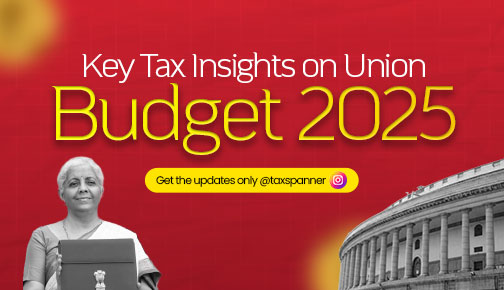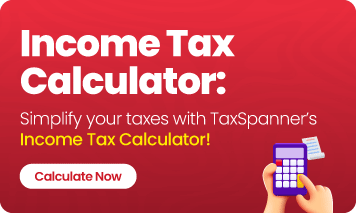Receiving a Tax Notice: How to Confirm its Validity and Review It?
ITR
28 min read
Subhasmitha Behera
Posted on
What is a Tax Notice?
An Income Tax Notice is like a written letter from the government's tax office that tells you there's a problem with your taxes.
The notice can be sent for several reasons, like if you forgot to file your tax return, if the tax department needs more information, or if they want to check your tax calculations.
What to Do When You Get an Income Tax Notice?
- Find out why the warning was sent, then read it thoroughly.
- Find out whether the notice was served because of an unusual mismatch in your income tax return.
- Make sure this notice is for you by checking its important details such as the notice must contain your exact name, PAN, mobile number, email address, and other information that proves that it was issued to you.
- You have a specified amount of time to reply to the notice within the given timeframe to avoid penalties and legal action.
Authenticating Notice/Order Issued by Income Tax Department
- Visit the income tax e-filing portal at www.incometax.gov.in and click on 'Authenticate notice/order issued by ITD' under 'Quick Links'.
- Then Authenticate using PAN, document type, assessment year, issue date, and mobile number (for AY 2011-12 and subsequent years only).
- Authenticate using Document Identification Number and mobile number (for all assessment years).
- Fill in all details, and then you will receive an OTP.
- Validate the OTP, and then the screen will display the DIN of the notice issued along with the date of issue.
- If the notice is not issued by the ITD, it will display a message stating no record found.
- Another option is to authenticate using DIN and mobile number. In this, you have to fill in the details asked and then click on 'Continue.' Validate the OTP that you have received. The screen will send you a success message if the notice/order is issued by ITD; otherwise, it will display no record found.
Reasons for Income Tax Notices
- Incorrect Information on Assets or Income in The Income Tax Return:
The Income Tax Department requires disclosure of all income and asset information within and outside of India.
- Mismatch in Disclosure of Actual Income & Declared Income:
- If income from various sources is not reported, a notice for non disclosure may be issued.
- Gathering all financial documents and proof of income sources, for example, payslip, bank statements, invoices, etc., to prevent income non-disclosure during tax return filing.
- Unexpected Changes in Investment Amounts, Elevated Transactions, or Income:
- The tax department monitors for sudden income decreases or increases.
- Notices may be issued for high-value real estate or high-value bank transactions.
- Excessive investments in spouse's or children's names may affect your overall taxable income.
- Unreported income may be reported.
- TDS Inconsistencies:
- TDS should match as per Forms 26AS and 16 or 16A.
- Notices under Section 143 (1) are issued if discrepancies are found.
- Employers, banks, and bond issuers can deposit TDS.
- The tax department is likely to send notices if the TDS deducted and income and interest earned are incorrect.
- Tax Return Review and Evaluation
- Notices may be issued under Section 143 (2) if tax authorities scrutinize the ITR filed.
- Discrepancies and incorrect reporting can trigger scrutiny.
- Income Tax Return is not filed or When additional information is required:
- Tax returns must be submitted by the deadline for each assessment year.
- Notices may be issued under Section 142(1)(i) of the Income Tax Act when additional information or further details are needed.
- Tax filing and payment are separate processes. Hence, ITD will send a notice in case you have only made the payment and haven't filed any tax returns.
- Tax returns must be submitted, even if the business experienced a loss.
- Adjustment of Refund Against Outstanding Demands:
- An intimation u/s 245 is issued where the outstanding demand for previous years are adjusted against refunds of the current year.
- Re-Evaluation of Prior Years of Tax Evasion:
- The Income Tax Act law allows the Internal Revenue Service to re-evaluate tax returns.
- The department can issue a notice under section 147 of the Act.
- Only when the tax officer suspects income evasion has escaped assessment, then they issue a notice for reassessment.
Types of Notices
Intimations under Section 143(1)
- Returns are electronically processed by the Central Processing Centre (CPC) after filing.
- Adjustments to total income include arithmetical errors, incorrect claims, disallowance of incorrectly claimed loss or expenditure, and income not included in the return.
- Intimations under section 143(1) are issued if there is a tax liability, a refund has been determined, or there is an increase or reduction in the amount of loss.
- Intimations must be issued within one year from the end of the year in which the return was filed.
- Processing of returns under this section became mandatory from AY 2017-18.
Notice Under Section 143(2)
- Notifies assessee of return scrutiny.
- Ensures you have not done any understatement of income, claimed excessive loss, or lesser tax payments.
- Requires taxpayer to respond to the questionnaire and required documents.
- Serviced within 6 months after completion of the assessment year.
Notice Under Section 148
- An assessing officer may believe an assessee has not disclosed their income correctly, leading to lower taxes or not filing their return.
- The officer can assess or reassess the income, depending on the case.
- Before making such an assessment, the officer should serve a notice to the assessee asking them to furnish their return of income.
- The Finance Act 2021 amendments limit the time limit for re-opening the assessment of the taxpayer, which are discussed below-
- Time limit in Normal cases: Up to three years from the end of the relevant assessment year.
- Beyond three years but not more than ten years: If the assessing officer has evidence that income of Rs.50 lakh or more has escaped assessment.
- Up to four years: Officers below the rank of Assistant Commissioner or Deputy Commissioner can issue notice under Section 148.
- Beyond four years but up to six years: The Chief Commissioner or Commissioner can issue notice if income has escaped assessment.
- Beyond four years but up to sixteen years: The Notice under Section 148 is issued in the case of any income from any asset outside India that is subject to tax in India but has escaped assessment.
Notice Under Section 245
- Assessing officers can issue a notice if they believe previous years' tax payments haven't been paid.
- Adjustment of demand and refund requires proper notice and opportunity for hearing.
- Response timeline is 30 days from receipt.
- Non-response can be considered consent, and the assessment will proceed.
Notice Under Section 142(1)
- Issued when additional information and documents are required by the assessing officer or can be issued when the return has not been filed but the officer wants it.
- Non-responsiveness can result in a penalty of Rs 10,000 and up to 1 year in prosecution or both of these.
Explore TaxSpanner's wide range of calculators for your tax planning and calculations!
View Tools & Calculators
Try TaxSpanner Today
TaxSpanner offers an end-to-end tax compliance solutions to individuals, Professionals and Businesses.

TaxSpanner.com is one of India’s largest and most trusted websites that offers online preparation of accounts books and filing of TDS, GST, individual Income Tax Returns (ITR). Established in 2007, TaxSpanner is based out of New Delhi. Since then, it has grown to build very large customer base in this market segment.
SPAN ACROSS IT SOLUTIONS PRIVATE LIMITED
GST: 07AAKCS5515R1ZN
Reach out to us
For sales queries
For service related queries
Email support




